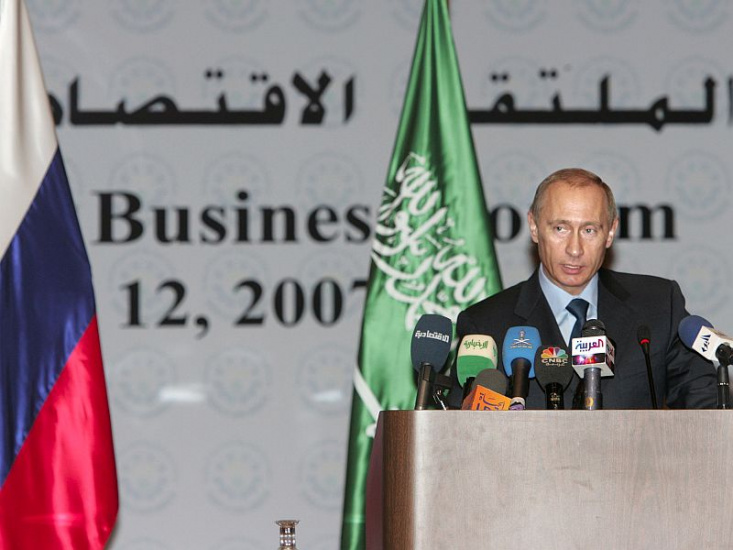Tension in Moscow-Riyadh Relations

As one of the members of the Security Council with veto power, Russia is a very important country in international politics. Moscow has also been able to play an important role in recent Syrian developments alongside China and it has not allowed the West to decide the fate of Syria as it wishes; a fate which is closely tied to Saudi interests and which has special plans for the post-Bashar era.
Russia's recent positions on Saudi Arabia's domestic brutalities has made many experts believe that Moscow is trying to make a deal with Saudi Arabia in order to weaken the position of this severely sectarian country in Syria's political scene, a position which has been much more destructive than constructive. In other words, Moscow has started a new game in the international arena and has entered a domain which is considered, due to the existing resources which provide oil for the West, part of the US security territory. Experts believe that Russia intends to expand its playing field in its dealings with the West by raising the issue of current developments in Saudi Arabia, in order to increase its bargaining power with regards to the West so as to pay the lowest price possible in Syria and take the most benefit.
According to a report by French news channel France 24, Konstantin Dolgov, the Russian Foreign Ministry's Commissioner for Human Rights, expressed his concern on the Foreign Ministry's official website over the killing of two young Shiite citizens from Qatib during protests in this city following the arrest of Sheikh Nimr al-Nimr, a top Saudi Shiite cleric. In this statement, Dolgov asked Saudi Arabia to prevent any further sectarian tension in the country and respect human rights and the freedom of expression, not allowing the country to become involved in sectarian disputes.
The Saudi Foreign Ministry's reaction to this statement clearly showed the shock Saudi officials had received as a result. In a statement in this regard, the Saudi Foreign Ministry expressed its surprise with regard to the position Russia had taken and called it an insult and interference in Saudi Arabia's internal affairs, strongly condemning such an action. It also stated that Russia's political positions are not in accordance with diplomatic principles. In addition, the Saudi Foreign Ministry reminded Russia that it has never interfered in Russia’s internal affairs, even though it knows well to what extent Russia is oppressing religious minorities in the country and to what extent the country suffers from domestic tension and disputes. The Saudis are referring to tensions involving radical Islamist supporters of independence for Chechnya and Dagestan, an issue on which the Saudis have tried to follow a neutral policy. Many experts say that the Salafis and movements linked to Al-Qaeda are seriously trying to infiltrate Russia's Chechen opposition and begin taking action against the Russian government. It is even said that some cells have been formed by Salafi groups in those regions; however, due to Russia's use of force, which has cut off the cells’ communication channels with the leaders of Salafi groups, they have not been able to have much serious activity. With the increase of tensions in Saudi-Russian relations, Saudi Wahhabi institutions, that are active under the guise of charity organizations, might try to provoke these cells in order to act against Russian interests.
Riyadh has also expressed its anger over the fact that the Russians have ignored what has been going on in Syria, while it has had no problem taking clear positions against domestic developments in Saudi Arabia.
Some experts are of the belief that what has happened between Moscow and Riyadh is in reality a sign of clear tension in relations between the two countries over the issue of Syria. They believe that differences in this regard are so extensive that Russia is willing to accept any tension created in its relations with the Saudis.

